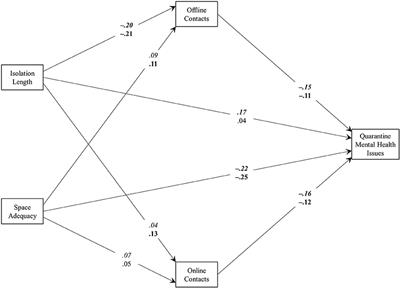- Joined
- Jan 25, 2023
- Messages
- 8,082
- Reaction score
- 6,945
- Gender
- Female
- Political Leaning
- Centrist
I found this awesome study on how isolation can impact mental health and what could be expected from the Covid shutdowns. I like this one because it goes into great detail about how the fear of death built a sense of 'threat' in citizens.

 www.frontiersin.org
www.frontiersin.org

Frontiers | Forced Social Isolation and Mental Health: A Study on 1,006 Italians Under COVID-19 Lockdown
<p>Most countries have been struggling with the spread of the COVID-19 pandemic imposing social isolation on their citizens. However, this measure carried ri...
